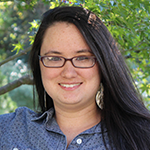How We Treat Anxiety
Learn more about how we treat anxiety in teens and anxiety in adults. Our residential treatment programs are our most intensive level of care for adults and adolescents with anxiety. Our day treatment program for anxiety may be an appropriate next step for adults not making progress in outpatient therapy.
Skyland Trail has expertise in treating individuals with complex diagnoses including anxiety and depression, anxiety and alcohol or substance use, or anxiety and borderline personality disorder.
ANXIETY IN ADULTS
18 AND OLDER
ANXIETY IN ADOLESCENTS
14-17 YEARS OLD
What is Anxiety?
Everyone experiences feelings and physical symptoms of stress when dealing with difficult situations or people. However, people with diagnosed anxiety disorders experience disability as a result of their response to stress. Untreated, their symptoms may prevent them from engaging in social and family relationships, meeting job and school requirements, and participating in other daily activities.
Anxiety disorders are the most common mental illnesses in the U.S., affecting 40 million adults, or 18 percent of the population at any point in time. Anxiety disorders include:
- Panic disorder
- Social anxiety
- Generalized anxiety disorder
- Phobias
Anxiety disorders frequently co-occur with depressive disorders or substance use, and some people are diagnosed with more than one type of anxiety disorder concurrently.
Christina M
"I'm 27 years old. I have struggled for most of my life with major depressive disorder and generalized anxiety...

Christina completed the psychiatric program at Skyland Trail, and now uses her recovery experience to help others as a certified peer specialist.
More StoriesSigns and Symptoms of Anxiety
The experience of an anxiety disorder or panic attacks may look and feel different from person to person. Some symptoms of an anxiety disorder include:
- Stomach pain including indigestion, gas and bloating, abdominal cramps and pain, and irritable bowel syndrome.
- Difficulty breathing including a choking sensation, hyperventilation, asthma attacks and coughing fits.
- Negative thoughts including anticipating danger and catastrophe around every corner, frequent feelings of inadequacy or impending failure, or believing that something bad will happen if certain things aren’t done a certain way.
- Feelings of worry which can result in edginess and physical trembling or shaking.
- Heart and chest pain
- Low appetite or binge eating
- Insomnia
- Feeling detached or unreal
Causes of Anxiety
Anxiety disorders can be caused by the interaction of genetics and environmental triggers including stress from traumatic events, medical conditions, relationships, academic or professional performance expectations, and unhealthy lifestyles. Some examples of common triggers for anxiety include:
- Stress from a personal relationship, job, or finances
- Childhood trauma or recent traumatic event
- Side effects of a prescribed medicine
- Accompanying symptoms of a related illness like depression or borderline personality disorder
- Stress from an underlying medical condition
- Expectations for achievement at school or work
- Lack of sleep, exercise, and healthy eating
Some triggers can be changed. For example you may be able to get more sleep, treat a medical condition, or change careers. But other triggers are unavoidable. Evidence-based mental health treatment can help people with anxiety learn how to manage triggering situations without experiencing severe symptoms of anxiety.
Effective Treatments for Anxiety
Without treatment, individuals experiencing anxiety may feel that their only option is to avoid situations that cause stress. Our goal in our residential treatment program for anxiety and our day treatment program is to support adult and adolescent clients as they learn new strategies to cope with stressful situations.
Evidence-based psychotherapy—both in groups and individually—focus on cognitive behavioral therapy (CBT). Our specialized masters-level licensed therapists help clients construct realistic, healthy thoughts through personalized psychotherapy and CBT groups. Our treatment team, complete with board-certified psychiatrists, helps clients confront their fears and negative thoughts incrementally, which allows clients to gradually reframe their thoughts and behaviors while preventing the disabling responses that they typically have in stressful circumstances.
We're Here to Help
Call 866-504-4966 to speak to an admissions team member to find out if our programs might be the right fit for you, a client, or a loved one. Our admissions counselors are available to answer your questions by phone:
Monday–Friday, 8:30 AM to 5:00 PM

